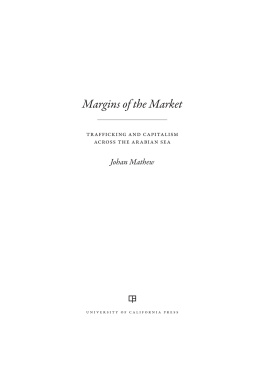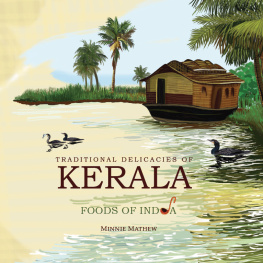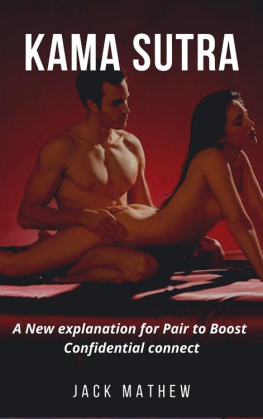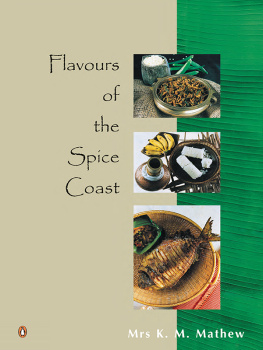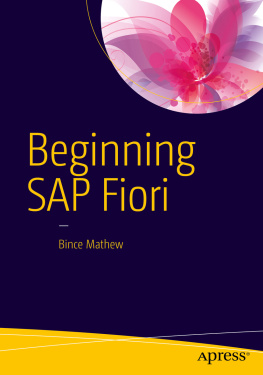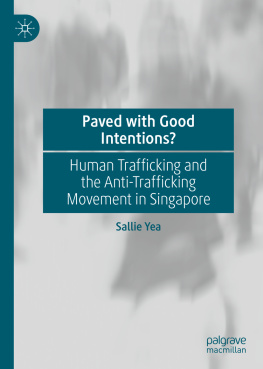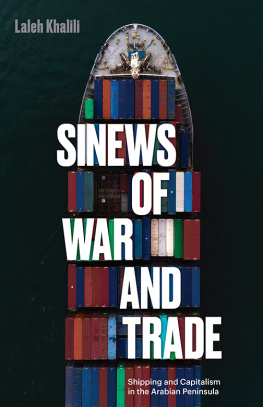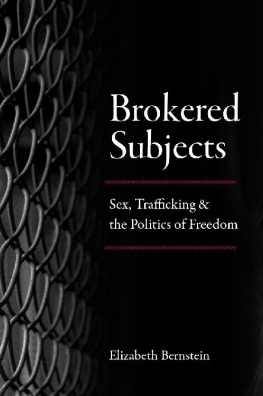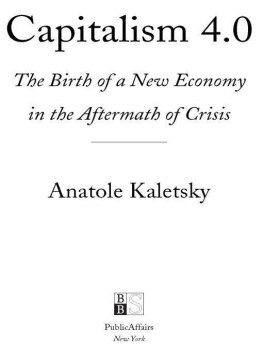Mathew - Margins of the market: trafficking and capitalism across the Arabian Sea
Here you can read online Mathew - Margins of the market: trafficking and capitalism across the Arabian Sea full text of the book (entire story) in english for free. Download pdf and epub, get meaning, cover and reviews about this ebook. City: Arabian Sea, year: 2016, publisher: University of California Press, genre: Business. Description of the work, (preface) as well as reviews are available. Best literature library LitArk.com created for fans of good reading and offers a wide selection of genres:
Romance novel
Science fiction
Adventure
Detective
Science
History
Home and family
Prose
Art
Politics
Computer
Non-fiction
Religion
Business
Children
Humor
Choose a favorite category and find really read worthwhile books. Enjoy immersion in the world of imagination, feel the emotions of the characters or learn something new for yourself, make an fascinating discovery.
Margins of the market: trafficking and capitalism across the Arabian Sea: summary, description and annotation
We offer to read an annotation, description, summary or preface (depends on what the author of the book "Margins of the market: trafficking and capitalism across the Arabian Sea" wrote himself). If you haven't found the necessary information about the book — write in the comments, we will try to find it.
Margins of the market: trafficking and capitalism across the Arabian Sea — read online for free the complete book (whole text) full work
Below is the text of the book, divided by pages. System saving the place of the last page read, allows you to conveniently read the book "Margins of the market: trafficking and capitalism across the Arabian Sea" online for free, without having to search again every time where you left off. Put a bookmark, and you can go to the page where you finished reading at any time.
Font size:
Interval:
Bookmark:

Edited by Edmund Burke III, Kenneth Pomeranz, and Patricia Seed
Johan Mathew

UNIVERSITY OF CALIFORNIA PRESS
University of California Press, one of the most distinguished university presses in the United States, enriches lives around the world by advancing scholarship in the humanities, social sciences, and natural sciences. Its activities are supported by the UC Press Foundation and by philanthropic contributions from individuals and institutions. For more information, visit www.ucpress.edu.
University of California Press
Oakland, California
2016 by The Regents of the University of California
Library of Congress Cataloging-in-Publication Data
Names: Mathew, Johan, author.
Title: Margins of the market : trafficking and capitalism across the Arabian Sea / Johan Mathew.
Description: Oakland, California : University of California Press, [2016] | Includes bibliographical references and index.
Identifiers: LCCN 2015046018 | ISBN 9780520288546 (cloth : alk. paper) | ISBN 9780520288553 (pbk. : alk. paper) | eISBN 9780520963429 (ebook)
Subjects: LCSH : SmugglingArabian Sea. | CapitalismArabian SeaHistory19th century. | CapitalismArabian SeaHistory20th century. | Free tradeArabian SeaHistory19th century. | Free tradeArabian SeaHistory20th century. | Human smugglingArabian Sea. | Slave tradeArabian SeaHistory.
Classification: LCC HJ 7033.5. Z 5 M 37 2016 | DDC 364.1/336091824dc23
LC record available at http://lccn.loc.gov/2015046018
Manufactured in the United States of America
25 24 23 22 21 20 19 18 17 16
10 9 8 7 6 5 4 3 2 1
In keeping with a commitment to support environmentally responsible and sustainable printing practices, UC Press has printed this book on Natures Natural, a fiber that contains 30% post-consumer waste and meets the minimum requirements of ANSI/NISO Z 39.481992 ( R 1997) ( Permanence of Paper ).
To Mom and Dad
A book that examines maritime trade and transnational merchants requires its own global diaspora of scholars, librarians, archivists, businesspeople, friends, and family. People across the globe have helped me in this endeavor, and it is impossible to adequately thank all of them for their contributions. For lack of space or knowledge, many I have relied upon remain unnamed, but please do not let my silence be mistaken for ingratitude. Others have made a special impact on me and on this book, so while it is poor recompense I would like to recognize and express my profound gratitude to them here.
This book depends on the merchant families that are at the heart of this history. First, Vimal Purecha has been exceedingly generous with his time, his hospitality, and his family history. Umesh Khimji, Usha Khimji, and their entire family were similarly open with their homes and memories. Shawqi Sultan, Redha Bhacker, Rajiv Ahuja, and Mohan Jashanmal all granted me important insights into the lives of merchants in the Gulf. Though I never had the pleasure of meeting him, Abdullah al-brs collection of merchant letters kept at the Juma al-Mjid Library were an indispensable source of access to the lives of Khaleeji merchants.
Next, Id like to thank both the institutions and the staffs of archives and libraries across the world. I began this work at Harvards Widener Library and ended it at the University of Massachusettss DuBois Library; both library systems and particularly their interlibrary loans were indispensable. In my research, I relied on the tireless assistance of myriad people at the British Library, particularly the staff of the Asian and African Studies Reading Room, the National Archives of the United Kingdom, the Guildhall Library, the Caird Library of the National Maritime Museum, the Middle East Centre Archive at St. Anthonys College, Oxford University, and the Faculty of Middle East and Asian Studies, the Kings College Archive Centre, and the University Library at Cambridge University. In India, I am very much indebted to the staff at the Maharashtra State Archives, the National Archives of India, and the Mumbai University Library. I also thank the Center for Documentation and Research in Abu Dhabi and the Juma al-Mjid Library in Dubai for their help. The staff at the Zanzibar National Archives were particularly helpful, and I must thank Seif and Omar for their enthusiasm and gracious hospitality. Id also like to thank Judi Palmer for her efforts to help me secure the cover image for this book. I would especially like to express my appreciation to HSBC, the Standard Chartered Bank, and the P&O Heritage Collection for giving me permission to use their archives and those of their predecessors.
This book began as a dissertation at Harvard University, and it could not have been completed without the generous financial and institutional support provided by the History Department, the South Asia Initiative, the Asia Center, and the Weatherhead Center. I would particularly like to acknowledge generous funding from the Foreign Language and Area Studies Program, the John Clive Fellowship, the Merit/Term Time Fellowship, and the Harvard Academy for International and Area Studies. The dissertation was turned into a book manuscript while I was at the University of Massachusetts, Amherst. I thank the university and especially the departments of history and economics at UMass for their financial support, especially in allowing me to take research leave in just my second year on the job. Last, but certainly not least, I want to express my deep gratitude to the Inter-Asia Program of the Social Science Research Council for granting me their Postdoctoral Fellowship for Transregional Research. This book would not have existed without the generosity of all these institutions.
It has been a privilege to publish with the University of California Press. Niels Hooper, Bradley Depew, Jessica Moll, and Ryan Furtkamp have made the process smooth and painless. Elisabeth Magnus cleaned up my confused prose and Alexander Trotter created the wonderful index. Ritu Birla and John Willis read this as ultimately not very anonymous reviewers; their comments, suggestions, and critiques were deeply insightful and untied Gordian knots that I had been struggling with for years. I was fortunate to have three presses agree to review the manuscript simultaneously, and though I did not end up working with them I want to acknowledge the generous efforts of Lucy Rhymer at Cambridge University Press and Susan Ferber at Oxford University Press. Two more anonymous reviewers for Cambridge University Press and one anonymous reviewer at Oxford University Press gave similarly insightful and incisive comments for which I am immensely appreciative. Chapter 3 is a revised version of an article that appeared in Slavery and Abolition (vol. 33, no. 1, March 2012, pp. 13956) under the title Trafficking Labor: Abolition and the Exchange of Labor across the Arabian Sea, 18611947. I would like to thank the Taylor & Francis Group and the editors of Slavery and Abolition for generously agreeing to permit this revised publication, and the anonymous reviewers for their suggestions. This book is infinitely better as a result of this wide variety of editorial and reviewer feedback.
In writing a book one relies on the guidance and mentoring of many scholars. First, I have to thank my dissertation adviser, Roger Owen. Through many years and many permutations of this project he was always conscientious and attentive and helped me to move ever onwards. Sugata Bose was always a skilled guide to the world of South Asian history, presiding over a movable feast of fine wine, delectable food, and stimulating intellectual debates. Engseng Ho has expanded my networks of scholarly interlocutors, prodded me to more rigorous analysis, and pushed me to plumb the conceptual depths of capitalism. Various chapters and sections of this book have been presented at a number of conferences and workshops, where I have received invaluable feedback. It would bore the reader to tears if I listed all of these events here, but a few participants and organizers deserve special mention: Gwyn Campbell, Prasenjit Duara, Katie Eagleton, Jeffrey Fear, Nelida Fuccaro, Arang Keshavarzian, Elizabeth Koll, Andrew Liu, Noora Lori, Matt Maclean, Nawaz Mody, Prasannan Parthasarathi, and Steven Serels. Extra gratitude goes to Laleh Khalili and David Ludden, who willingly read the entire manuscript, just as I was finishing the whole process. These scholars are responsible for many of the insights and contributions of this book, but I alone take responsibility for its failings.
Font size:
Interval:
Bookmark:
Similar books «Margins of the market: trafficking and capitalism across the Arabian Sea»
Look at similar books to Margins of the market: trafficking and capitalism across the Arabian Sea. We have selected literature similar in name and meaning in the hope of providing readers with more options to find new, interesting, not yet read works.
Discussion, reviews of the book Margins of the market: trafficking and capitalism across the Arabian Sea and just readers' own opinions. Leave your comments, write what you think about the work, its meaning or the main characters. Specify what exactly you liked and what you didn't like, and why you think so.

